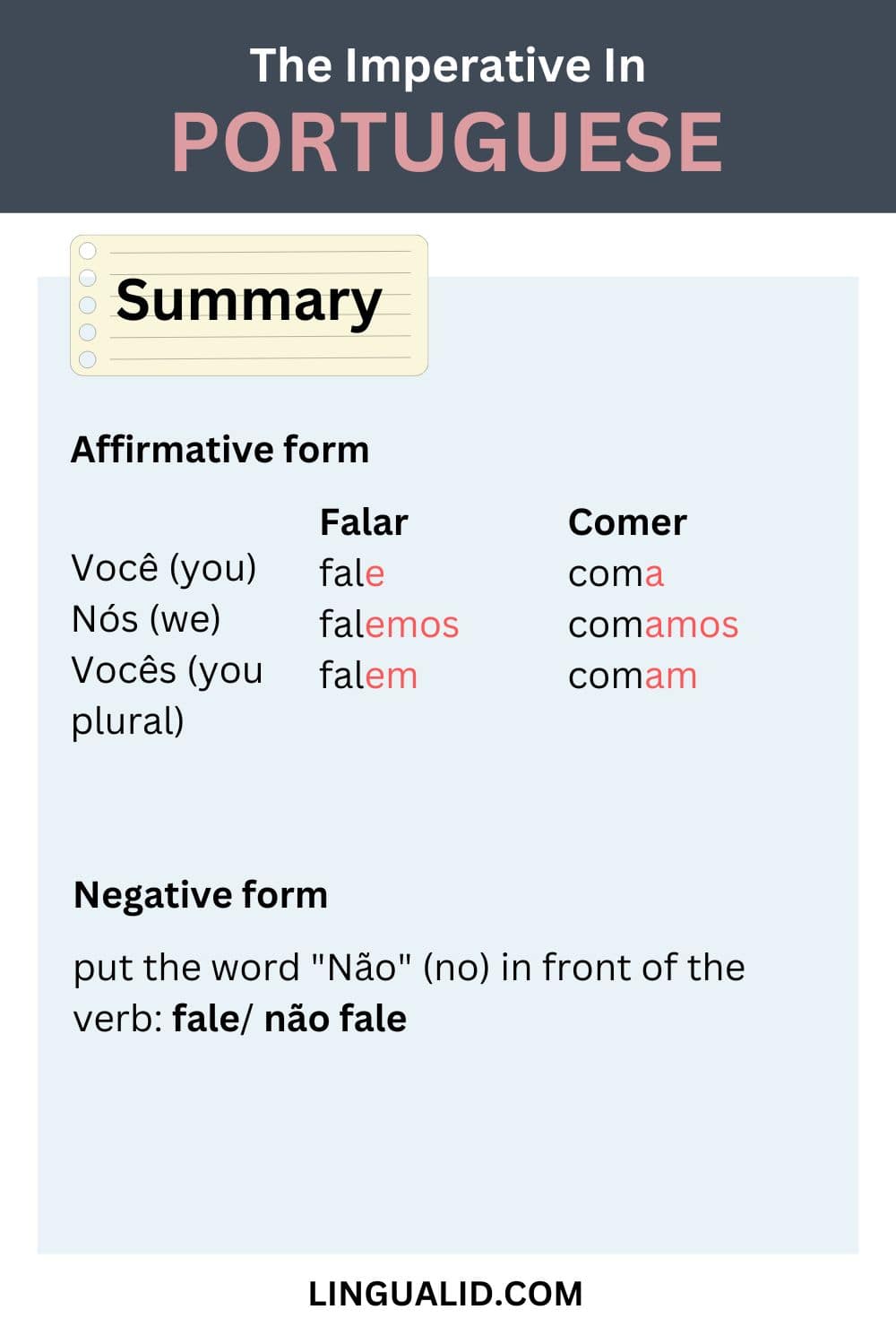In this lesson, we will talk about the imperative in Portuguese, and how to use it in both formal and informal forms.

The imperative (also known as command) is the tense used when we want to give an order, or recommend or request something, and in Portuguese, it’s formed easily by replacing the endings “ar, er, ir” with the appropriate ending, look at the following tables:
Verbs ending with AR
| Pronoun | imperative ending |
| Você (you) | -e |
| Nós (we) | -emos |
| Vocês (you plural) | -em |
Example: Estudar (to study):
| Pronoun | imperative |
| Você (you) | estude |
| Nós (we) | estudemos |
| Vocês (you plural) | estudem |
Example: Falar (to speak)
| Pronoun | imperative |
| Você (you) | fale |
| Nós (we) | falemos |
| Vocês (you plural) | falem |
Verbs ending with ER
| Pronoun | imperative ending |
| Você (you) | -a |
| Nós (we) | -amos |
| Vocês (you plural) | -am |
Example: aprender (to learn)
| Pronoun | imperative |
| Você (you) | aprenda |
| Nós (we) | aprendamos |
| Vocês (you plural) | aprendam |
Example: comer (to eat)
| Pronoun | imperative |
| Você (you) | coma |
| Nós (we) | comamos |
| Vocês (you plural) | comam |
Verbs ending with IR
| Pronoun | imperative ending |
| Você (you) | -a |
| Nós (we) | -amos |
| Vocês (you plural) | -am |
Example: decidir (to decide)
| Pronoun | imperative |
| Você (you) | decida |
| Nós (we) | decidamos |
| Vocês (you plural) | decidam |
Example: partir (to leave)
| Pronoun | imperative |
| Você (you) | parta |
| Nós (we) | partamos |
| Vocês (you plural) | partam |
Note: you can practice what you’ve learned here, and learn how to pronounce each of the words in our Memrise course here, don’t know how to use the platform or sign up? we’ve got you covered in this easy-to-follow tutorial here.
The Negative Form Of The Imperative
To use the imperative in its negative form, put the word “Não” (no) in front of the verb: fale/ não fale
That was the formal way of the imperative, you may get confused if chatting with a Brazilian friend online for example, as they easily use the present tense to express it, so instead of “fale comigo! – talk to me!” you’ll hear “fala comigo!” another thing, to say “falamos amanhã – let’s talk tomorrow” they’ll mostly say “vamos falar amanhã”

Happy learning!
